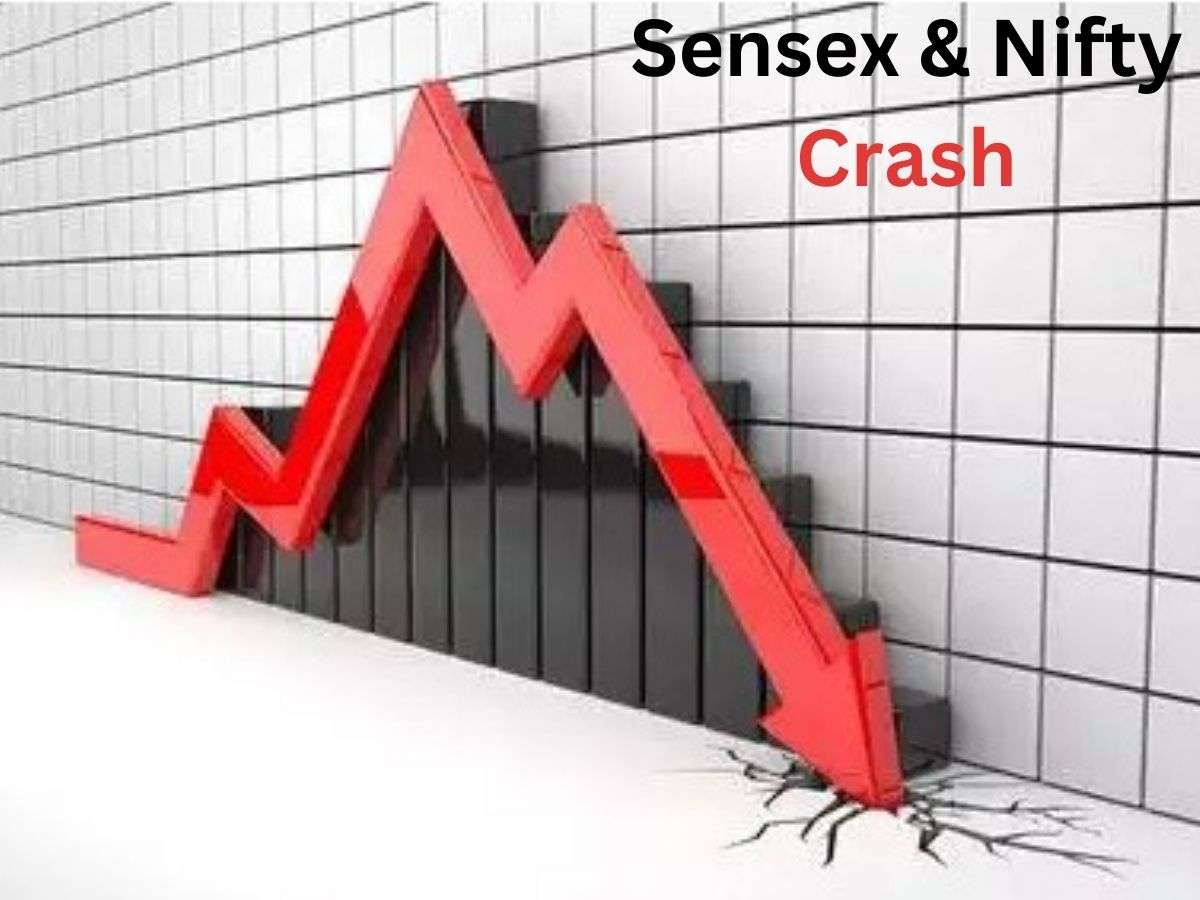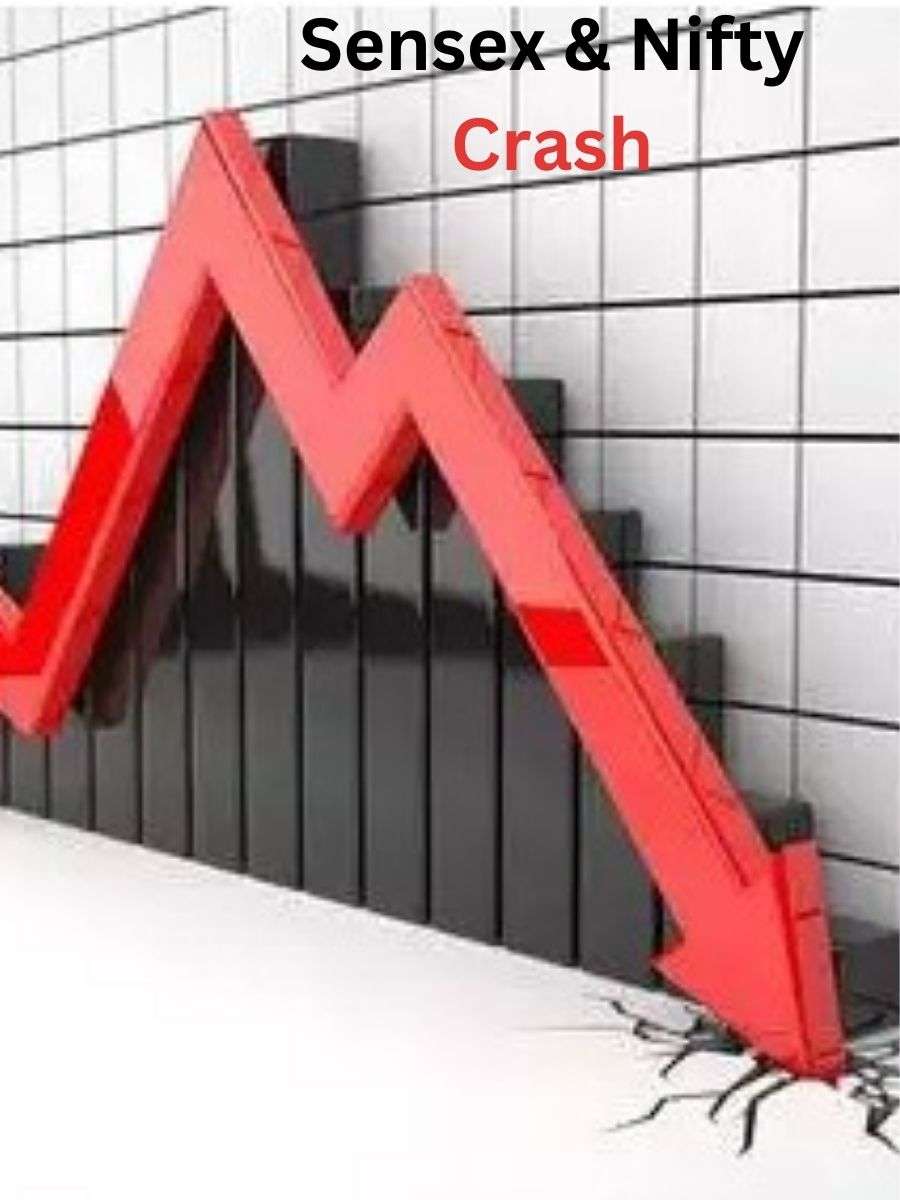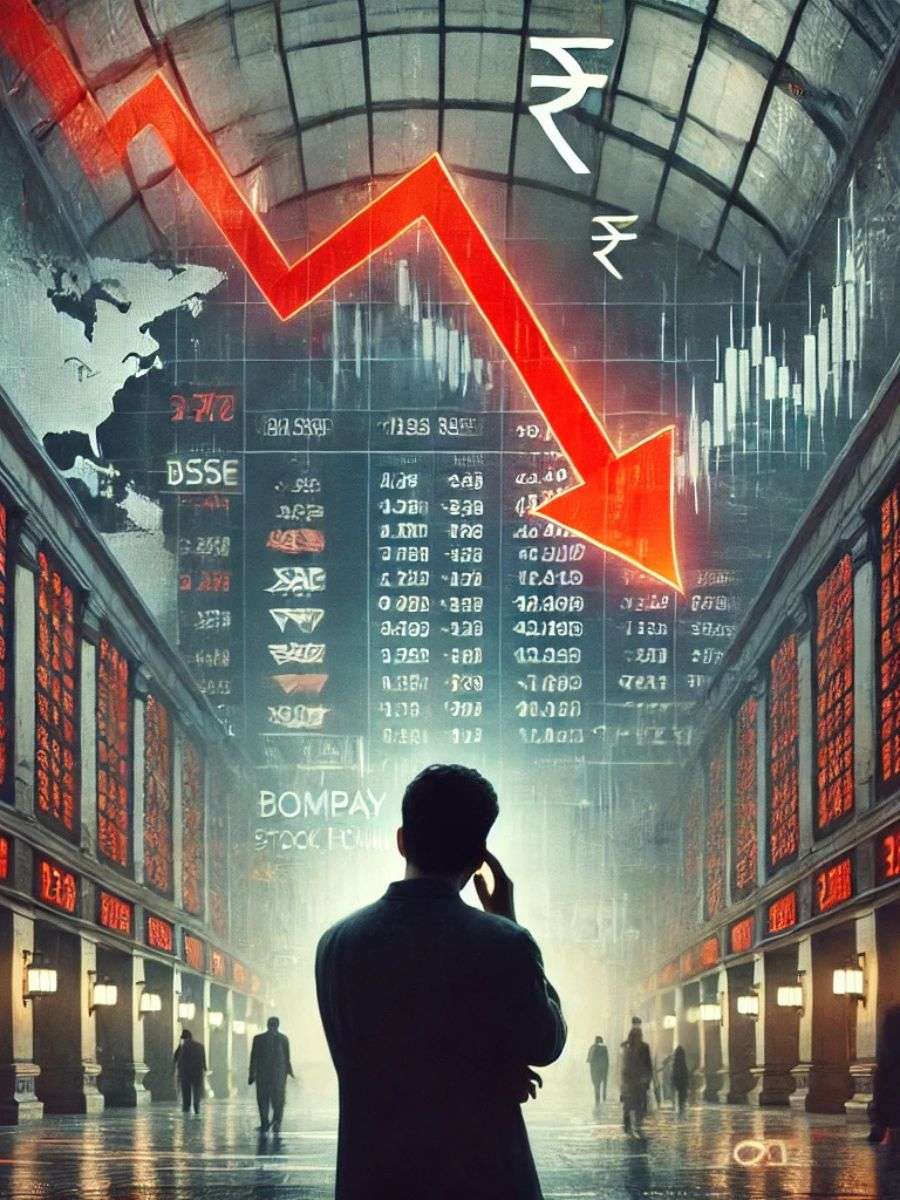Introduction
The Indian stock market experienced a significant downturn on Monday, August 5, with the Sensex and Nifty 50 indices crashing by 3% and 2% respectively. This sharp decline reflects a global trend fueled by various economic and geopolitical factors. In this article, we’ll explore the reasons behind this market crash and provide insights into what investors can expect moving forward.

Historical Context
To put the current market crash into perspective, it’s essential to look at similar downturns in the past. The Indian stock market has faced several crashes, each triggered by different factors such as economic crises, political instability, and global market trends. By comparing these historical events with the current crash, we can better understand the underlying causes and potential recovery paths.
US Recession Fears
One of the primary reasons for the recent market crash is the fear of a looming recession in the United States. Recent job data showed a significant increase in the US unemployment rate to 4.3%, the highest in nearly three years. This has spooked investors globally, leading to a sell-off in various markets, including India. Experts have increased the probability of a US recession, which has further dampened investor sentiment.
Rising Tensions in the Middle East
Geopolitical tensions, particularly between Iran and Israel, have also played a crucial role in the market’s decline. The assassination of Hamas political chief Ismail Haniyeh by Israel has escalated tensions in the Middle East. The United States has responded by increasing its military presence in the region, heightening fears of an imminent war. This geopolitical uncertainty has made investors wary, contributing to the market sell-off.
Stretched Valuations in the Indian Market
Another critical factor is the stretched valuations in the Indian stock market. The market has been on a bullish trend, driven by sustained liquidity flows. However, this has led to overvaluation, particularly in mid and small-cap segments. The market was therefore ready for a downturn. Experts advise caution, suggesting that investors wait for the market to stabilize before making any significant moves.
Unimpressive Q1 Results
The first quarter results for the fiscal year 2025 (Q1FY25) have been mixed, failing to meet market expectations. Several sectors reported lower-than-expected earnings, which has further dampened market sentiment. The high market valuation, combined with unimpressive earnings, has triggered profit booking among investors, leading to a significant market downturn.
Global Economic Slowdown
The economic slowdown in major economies like China and Europe is also impacting the Indian market. China’s sluggish growth and Europe’s economic challenges have created a ripple effect, affecting global trade and investment flows. This global slowdown has added to the negative sentiment in the Indian stock market.
Interest Rate Hikes
Recent interest rate hikes in Japan have had a significant impact on global markets. The increase in rates has led to fears of a reverse yen carry trade, where investors pull out of riskier assets to invest in the Japanese yen. This has added pressure on global markets, including India, contributing to the overall market decline.
Market Reaction and Investor Behavior
The market’s reaction to these developments has been swift and severe. Investors are quick to sell off their holdings in response to negative news, leading to sharp declines in stock prices. During such volatile times, it’s crucial for investors to remain calm and avoid making impulsive decisions. Instead, focus on long-term investment strategies and diversify portfolios to mitigate risks.
Government and Regulatory Responses
The Indian government and regulatory bodies have been monitoring the situation closely. Various measures are being considered to stabilize the market and restore investor confidence. These include policy interventions, monetary measures, and efforts to boost economic growth. Experts believe that timely and effective government actions can help mitigate the impact of the crash.
Impact on Different Sectors
The market crash has had a varied impact on different sectors. Some sectors, such as defense and railways, which were previously overvalued, are now facing significant pressure. Conversely, sectors like healthcare and consumer staples, which are typically considered safe havens during economic downturns, may present investment opportunities.
Future Outlook
The future outlook for the Indian stock market remains uncertain. While some experts predict a short-term recovery once the immediate fears subside, others warn of a prolonged downturn if global economic conditions do not improve. It’s crucial for investors to stay informed and be prepared for potential market fluctuations.
Investment Strategies During Volatile Times
During such volatile times, adopting safe investment strategies is essential. Diversification is key to managing risk. Investors should consider allocating their portfolios across different asset classes and sectors. Long-term investment strategies are generally more resilient to market volatility compared to short-term speculative investments.
Lessons from the Crash
The recent market crash offers several lessons for investors. Firstly, it underscores the importance of staying informed about global economic trends and geopolitical developments. Secondly, it highlights the need for diversification and long-term investment strategies. Finally, it serves as a reminder to remain calm and avoid impulsive decisions during market downturns.
Conclusion
In conclusion, the recent crash in the Indian stock market is a result of multiple factors, including US recession fears, geopolitical tensions, stretched valuations, unimpressive earnings, and global economic slowdowns. While the situation may seem dire, it’s essential for investors to remain calm, stay informed, and adopt prudent investment strategies. By doing so, they can navigate through the current volatility and position themselves for future growth.
FAQs
1. What caused the recent crash in the Indian stock market?
The crash was triggered by US recession fears, rising geopolitical tensions in the Middle East, stretched market valuations, unimpressive Q1 results, and a global economic slowdown.
2. How should investors react to the current market situation?
Investors should remain calm, avoid impulsive decisions, and focus on long-term investment strategies. Diversifying their portfolios can help manage risk during volatile times.
3. What sectors are most affected by the crash?
Sectors that were previously overvalued, such as defense and railways, are facing significant pressure. Conversely, sectors like healthcare and
Open Your Demat Account with Discount Brokers:
ZERODHA 1) : https://zerodha.com/open-account?c=EJ4366
Angelone 2) : https://tinyurl.com/2gloc3g6 or
Upstox3): https://link.upstox.com/9w4tNo1rK8au7VK47








